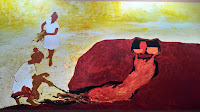
 Chen Ning and Regan invited me to their wedding. I felt so lucky. A friend drove four of us out to the country to Reagan's small village. It was a bright sunny day and we drove a couple of hours through rural countryside.
Chen Ning and Regan invited me to their wedding. I felt so lucky. A friend drove four of us out to the country to Reagan's small village. It was a bright sunny day and we drove a couple of hours through rural countryside.When we arrived we were, of course, treated to snacks and Baizhou. People were very welcoming. I think no one in the village spoke English. It was a chance to be present at an important event in their lives where normally you would never find a foreigner.
The main street had been set up with red carpet, pink heart archways and a stage. I learned to wish the happy couple a long and prosperous life and children. This is not too hard to say in Chinese, but it took a while to get it right. It was Chen Ning who invited me. She looked gorgeous in her Western style white wedding dress. They gave each other rings. Apparently they had opted for Western clothing; although most of the event had a more traditional Chinese flavour. There were lots of fireworks and speeches. A small child did a cute dance. There were also traditional introductions of the bride to the parents of the groom and the groom to parents of the bride. According to tradition she is leaving her family and going to live in his home where she will help look after his parents.

That's the tradition. In fat they both live together in Xi'an. There were so many photos. I got myself in line for a photo with both of them together. A wedding is so universal - always a joyful occasion. This one was no exception.
There was soooo much food. Its all cooked out of doors and certain dishes are obligatory - those are chickens on the right. A lot of the cooking is done in huge pots over a coal fire.
Everything I tried was delicious; although I do have a personal rule to avoid eating the feet of anything.










 on my Chinese. Many thanks to Lucy, Lili, Ana and Grace for a golden day in the heart of China which will live in my memory for a long time.
on my Chinese. Many thanks to Lucy, Lili, Ana and Grace for a golden day in the heart of China which will live in my memory for a long time.




































